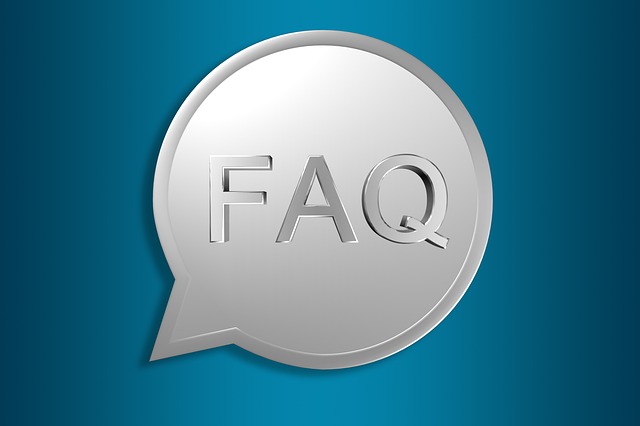It was announced on March 20 that Tax Day would be postponed from April 15 to July 15 to coincide with the delayed tax payment deadline at the direction of President Trump. Treasury Secretary Steven Mnuchin announced the postponement via Twitter, stating that all taxpayers and businesses will have until July 15 to file and make payments without interest or penalties.
Many states are still announcing their response to the deadline. Due to COVID-19, Minnesota is providing additional time until July 15, 2020, for taxpayers to file and pay 2019 Minnesota Individual Income Tax without any penalty and interest. Minnesota has not extended 2020 first and second quarter taxes.
We know you have lots of questions. Below is a summary of the 10 most common questions and the IRS’s response. For more information, please refer to the IRS website.
- Who is eligible for the tax deadline extension?
Any person with a Federal income tax return or payment due on April 15, 2020, is eligible for relief under the Notice. “Person” includes any type of taxpayer, such as an individual, trust, estate, corporation, or any type of unincorporated business entity. The payment due refers to both 2019 federal income tax payments (including payments of tax on self-employment income) and 2020 estimated federal income tax payments (including payments of tax on self-employment income), regardless of the amount owed. The return or payment must be due on April 15, 2020 – this relief does not apply to federal income tax returns and payments due on any other date.
- If my business or entity files any other date besides April 15, is my deadline postponed?
No, any taxpayers who have filing or payment due dates other than April 15 have not been granted relief at this time.
- Does the relief provided in the extension apply to payroll or excise tax?
No, under the Notice, normal filing, payment, and deposit due dates continue to apply to both payroll and excise taxes.
- Does the relief provided in the extension apply to estate and gift taxes?
Yes, as of March 27, the deadline extension includes gift and GST taxes due but does not currently include estate taxes.
- Does the relief provided apply to information returns?
No, the relief only applies to the filing of federal income tax returns due on April 15, 2020.
- If I haven’t filed my 2019 income tax return and expect to file it on July 15, what do I need to do?
File and pay any tax due with your return by July 15. You do not need to file any additional forms or call the IRS to qualify for this automatic federal tax filing and payment relief. If you expect a refund, you are encouraged to file your return as soon as you can so that you can receive your refund. Filing electronically with direct deposit is the quickest way to get refunds. If you need more time beyond July 15 to file your return, request an automatic extension of time to file as described next.
- I already filed my 2019 tax return and I owe taxes, but I haven’t paid yet. What do I need to do to avoid interest and penalties?
To avoid interest and penalties, pay your taxes in full by July 15, 2020. If you filed Form 1040 or Form 1040-SR, the tax payment amount can be found on line 23. If you filed Form 1040-NR, the tax payment amount can be found on line 75. For a corporation filing a Form 1120, the tax payment amount can be found on line 35.
Interest and penalties will begin to incur after July 15 for any amount remaining unpaid by that date.
- I already filed my 2019 tax return and scheduled a payment of taxes for April 15, 2020. Will this payment be rescheduled to July 15, 2020?
No, the payment will not be automatically rescheduled to July 15. If you do nothing, the payment will be made on the date you chose. Here is information on how to cancel and reschedule your payment:
- If you scheduled a payment through IRS Direct Pay, you can use your confirmation number from the payment to access the Look Up a Payment You can modify or cancel a scheduled payment until two business days before the payment date. The email notification you received when you scheduled the payment will contain the confirmation number.
- If you scheduled a payment through Electronic Federal Tax Payment System (EFTPS), click on Payments from the EFTPS home page. Log in, then click Cancel a Tax Payment from the left menu and follow the instructions. You must do so at least two business days before the scheduled payment date.
- If you scheduled a payment as part of filing your tax return (authorizing an electronic funds withdrawal), you may revoke (cancel) your payment by contacting the U.S. Treasury Financial Agent at 888-353-4537. You must call to make a payment cancellation request no later than 11:59 p.m. ET two business days prior to the scheduled payment date.
- If you scheduled a payment by credit card or debit card, contact the card processor to cancel the card payment.
- Does this relief apply to state tax liabilities?
No, this relief applies only to federal income tax payments. State filing and payment deadlines vary and are not always the same as the federal filing and payment deadline. We urge you to check with your state tax agencies for those details. More information is available at https://www.taxadmin.org/state-tax-agencies.
- The extension postpones the first quarter estimates due on April 15, 2020 to July 15, 2020. Does it also postpone the second quarter estimate due on June 15, 2020?
Yes, second quarter 2020 estimated income tax payments are now also extended to July 15, 2020.


